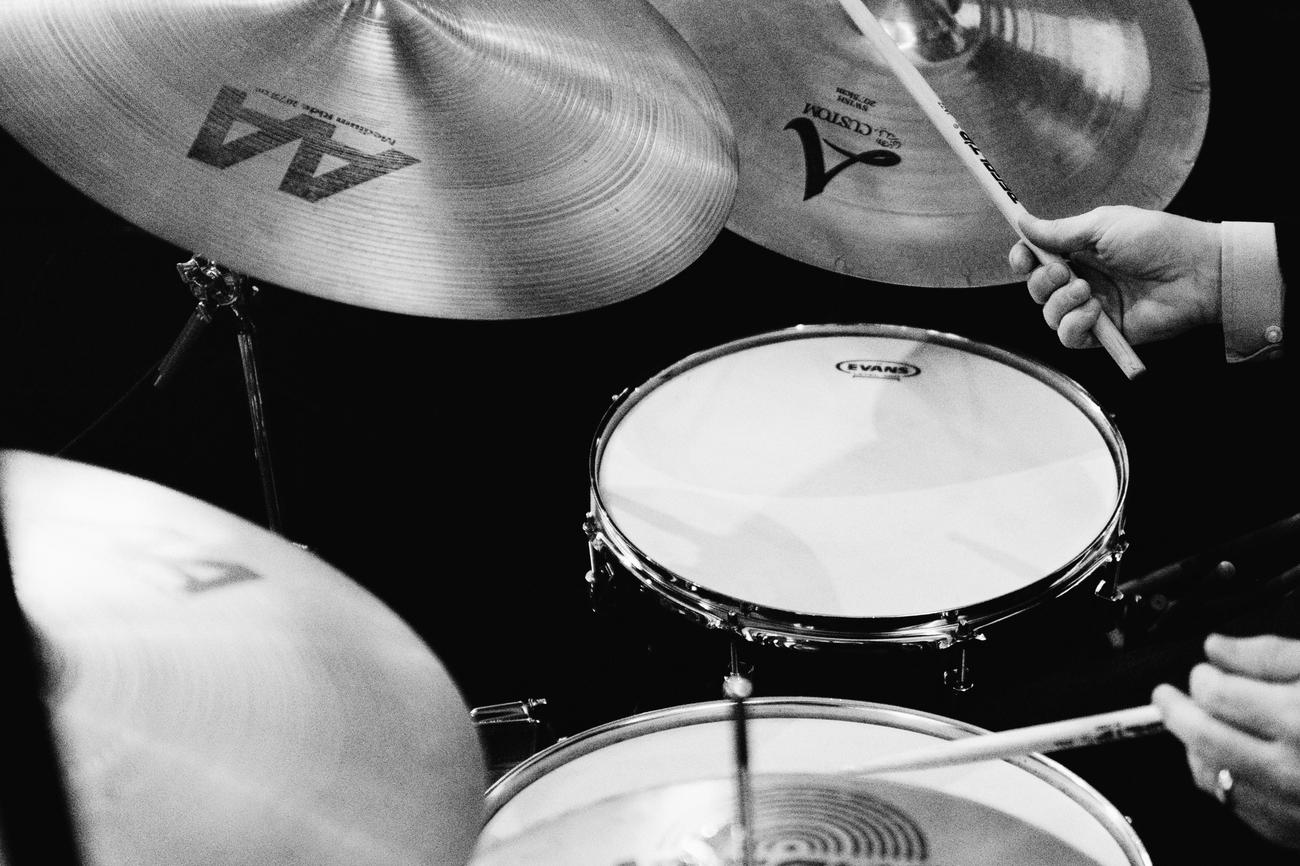Why Drummers Rarely Sing: Unraveling the Psychological and Technical Dynamics

When we think of rock ‘n’ roll legends or captivating frontmen, our minds often conjure up images of charismatic guitarists belting out powerful vocals, or bassists locking in with the rhythm section. Rarely do we consider the drummers, the backbone of any band, stepping up to the mic. This intriguing phenomenon begs the question, why do drummers rarely sing? The confluence of psychological and technical dynamics behind this mystery is what we aim to unravel in this insightful article. By delving into the history of drumming, exploring the intricacies of the craft, and tapping into the minds of experienced musicians, we hope to shed light on the reasons drummers often shy away from the vocal spotlight. Prepare to embark on a journey that will challenge your perceptions and enlighten your understanding of this fascinating topic.
Why do drummers rarely sing?
In the vast landscape of the music industry, drummers are often seen as the backbone of a band, providing the crucial rhythmic foundation upon which the other musicians build their melodies and harmonies. However, it is a rare occurrence to find a drummer who also takes on the role of lead vocalist. So, what is it about the art of drumming that makes it so rarely intertwined with the art of singing? Let’s delve into the psychological and technical dynamics that contribute to this phenomenon.
The Physical and Mental Challenges
One undeniable reason why drummers rarely sing is the physical and mental demands of both roles. Drumming requires a high level of coordination and dexterity, as drummers must skillfully navigate their limbs to create intricate rhythms. Singing, on the other hand, demands a considerable amount of breath control, vocal technique, and emotional connection to the lyrics. Combining these two demanding tasks can become overwhelming for even the most talented musicians.
Imagine trying to pat your head and rub your stomach simultaneously. Now, amplify the complexity by incorporating foot pedals, cymbal crashes, and snare hits into the mix. It becomes clear that drumming itself requires an immense amount of focus and concentration. Asking a drummer to simultaneously sing and drum requires them to divide their attention, making it extraordinarily challenging to execute both tasks flawlessly.
The Rare Breed
Singing drummers are indeed a rare breed in the music world. While there are a few exceptional individuals who have mastered this combination, their rarity only adds to the perceived difficulty of the task. This scarcity can be attributed to a variety of factors. Some drummers may simply prioritize their drumming skills and devote their time and energy to honing their craft. They may find such fulfillment and satisfaction in mastering the intricacies of drumming that the idea of adding singing to their skill set seems unnecessary.
Additionally, the music industry often tends to pigeonhole musicians into specific roles based on their talents and abilities. Drummers are typically perceived as the rhythm experts, while vocalists are expected to carry the melody and lyrics. This longstanding tradition may discourage drummers from venturing into the realm of singing, as they may fear being seen as “jack of all trades, master of none.”
The Timing and Rhythmic Benefits
While drummers may shy away from taking on vocal duties, it is worth exploring the potential benefits that singing while playing drums could offer. Singing while drumming can enhance a drummer’s timing and rhythmic skills over time. The act of vocalizing melodies and lyrics requires drummers to translate those melodic structures into their drumming patterns, resulting in a more holistic musical experience. By integrating vocalization into their drumming practice, drummers may develop a deeper sense of musicality and become more attuned to the nuances of a song.
Embracing this challenging undertaking can also open new avenues for creative expression and expand a drummer’s musical horizons. By venturing into the territory of singing, drummers can explore a wide range of vocal textures, adding depth and complexity to their sound. This integration of singing and drumming may even inspire innovative musical arrangements and compositions.
In conclusion, the scarcity of singing drummers is not due to a lack of talent or ambition. Rather, it stems from the physical and mental challenges of simultaneously performing these two intricate roles. However, the rarity of singing drummers in the music world should not overshadow the potential benefits of bridging the gap between drumming and singing. By embracing this union, drummers can cultivate their musicality, expand their creative possibilities, and contribute to a more dynamic and immersive musical landscape.
Key Takeaway:
Drummers rarely sing due to the physical and mental challenges of simultaneously performing both roles. The demands of drumming and singing require intense focus, coordination, and concentration, making it difficult for drummers to divide their attention. Additionally, the rarity of singing drummers in the industry perpetuates the perception that drummers should stick to their rhythmic expertise. However, embracing the challenge of singing while drumming can enhance a drummer’s timing and rhythmic skills, elevate their musicality, and inspire innovative creative possibilities.
Drums have been an integral part of human civilization for centuries, captivating minds and stirring souls with their mesmerizing rhythm. If you’re a true drum enthusiast or simply curious about the origins and intriguing aspects of this instrument, you’re in for a treat. Get ready to dive deep into the fascinating world of drums and discover some entertaining and surprising fun facts about drums.
Now, without further ado, let’s explore these fun facts about drums. Did you know that drums can be traced back to ancient civilizations such as Egypt and Mesopotamia? They were used not only for entertainment but also for communication and religious ceremonies. You’ll be amazed to learn about the variety of drum types and how they differ across cultures and musical genres.
If you thought drumming was all about brute force and rhythm, think again. It’s a well-known fact that drummers possess a remarkable sense of coordination and multitasking. Discover how drumming enhances cognitive abilities and boosts brain power while providing an exhilarating sensory experience.
Whether you’re a seasoned drummer or someone who just loves tapping their toes to a beat, these fun facts about drums will leave you wanting to know more. So, waste no more time and click here to uncover the secrets behind the enchanting world of drums!
SEO-Friendly Title: The Reasons Behind the Scarcity of Singing Drummers
[youtube v=”YBtLXHDPdSI”]
The Reasons Behind the Scarcity of Singing Drummers
Drumming and singing are two distinct skills that require different physical and mental demands. While drumming requires coordination and dexterity, singing calls for breath control and emotional connection to the lyrics. Combining these two tasks can be overwhelming, even for the most talented musicians. As a result, singing drummers are a rare breed in the music world.
One reason for the scarcity of singing drummers is that drummers often prioritize their drumming skills and do not see the need to add singing to their repertoire. Drummers may choose to focus solely on their instrument, dedicating their time and energy to perfecting their craft. Singing requires a different skill set, and some drummers may feel that it detracts from their drumming abilities.
Additionally, the music industry tends to pigeonhole musicians into specific roles, discouraging drummers from exploring singing. Drummers are often seen as the backbone of a band, providing the rhythm and foundation for the music. Singers, on the other hand, take on the spotlight and are expected to deliver captivating vocal performances. This division of roles can discourage drummers from stepping outside their comfort zone and embracing singing.
However, there are benefits to combining drumming and singing. Singing while drumming can enhance a drummer’s timing and rhythmic skills. Vocalizing melodies and lyrics allows drummers to translate them into drumming patterns, creating a deeper musical experience. Moreover, singing while drumming can expand a drummer’s creative expression, inspiring new musical arrangements and compositions.
Despite these potential benefits, the scarcity of singing drummers should not overshadow the challenges and expectations that come with bridging the gap between drumming and singing. Drummers must master two complex skills and find a balance between them. It requires dedication, practice, and a willingness to step outside traditional roles.
In conclusion, the scarcity of singing drummers can be attributed to the physical and mental demands of both drumming and singing, the prioritization of drumming skills, and the music industry’s tendency to categorize musicians into specific roles. However, singing while drumming can enhance a drummer’s timing, rhythm, and creativity. While it may be challenging, bridging the gap between drumming and singing has the potential to create unique musical experiences and open doors to new artistic possibilities.

FAQ
Q: Why is it challenging for drummers to be both a lead singer and a drummer in a band?
A: Being both a lead singer and a drummer in a band is challenging both physically and mentally. Drumming requires complex movements and coordination, and singing while playing drums adds an extra layer of difficulty. It requires multitasking and split concentration, which can be overwhelming for some drummers.
Q: What makes singing and playing drums simultaneously difficult?
A: Singing and playing drums simultaneously is difficult due to the necessary movements involved in drumming. Drummers need to use their limbs and focus on maintaining a steady rhythm, while singing requires breath control, pitch accuracy, and vocal technique. Coordinating these actions can be tricky, especially when playing complex drum patterns or having to switch between singing and drum fills.
Q: Why are singing drummers rare in the music world?
A: Singing drummers are rare in the music world because it requires exceptional skill and practice to master both disciplines effectively. The physical demands of drumming, combined with the mental effort of singing, can be overwhelming for many musicians. Additionally, drummers often serve as the backbone of a band’s rhythm section, focusing on providing a solid foundation for the music, which may make it more challenging to take on the additional role of lead vocalist.
Q: Can singing while playing drums improve timing and rhythmic skills?
A: Yes, singing while playing drums can improve timing and rhythmic skills over time. The act of singing and drumming simultaneously forces drummers to internalize the rhythmic patterns of both the drums and the vocals. This dual awareness enhances their ability to maintain a steady tempo and syncopation. With practice, drummers who sing can develop a heightened sense of timing and become more versatile musicians.
Q: Are there any famous drummers who also sing?
A: Yes, there are several famous drummers who also sing. Examples include Phil Collins of Genesis, Don Henley of the Eagles, and Dave Grohl of Foo Fighters. These drummers have successfully taken on the role of lead vocalist in their respective bands while maintaining their prowess on the drums. Their ability to handle both responsibilities showcases the exceptional talent and dedication required to be a singing drummer.









